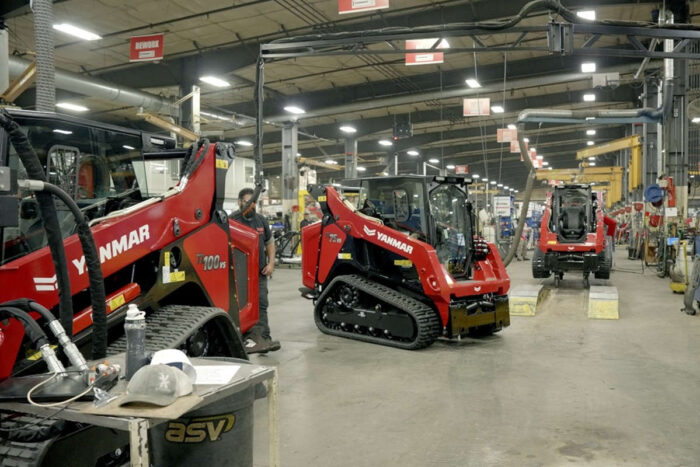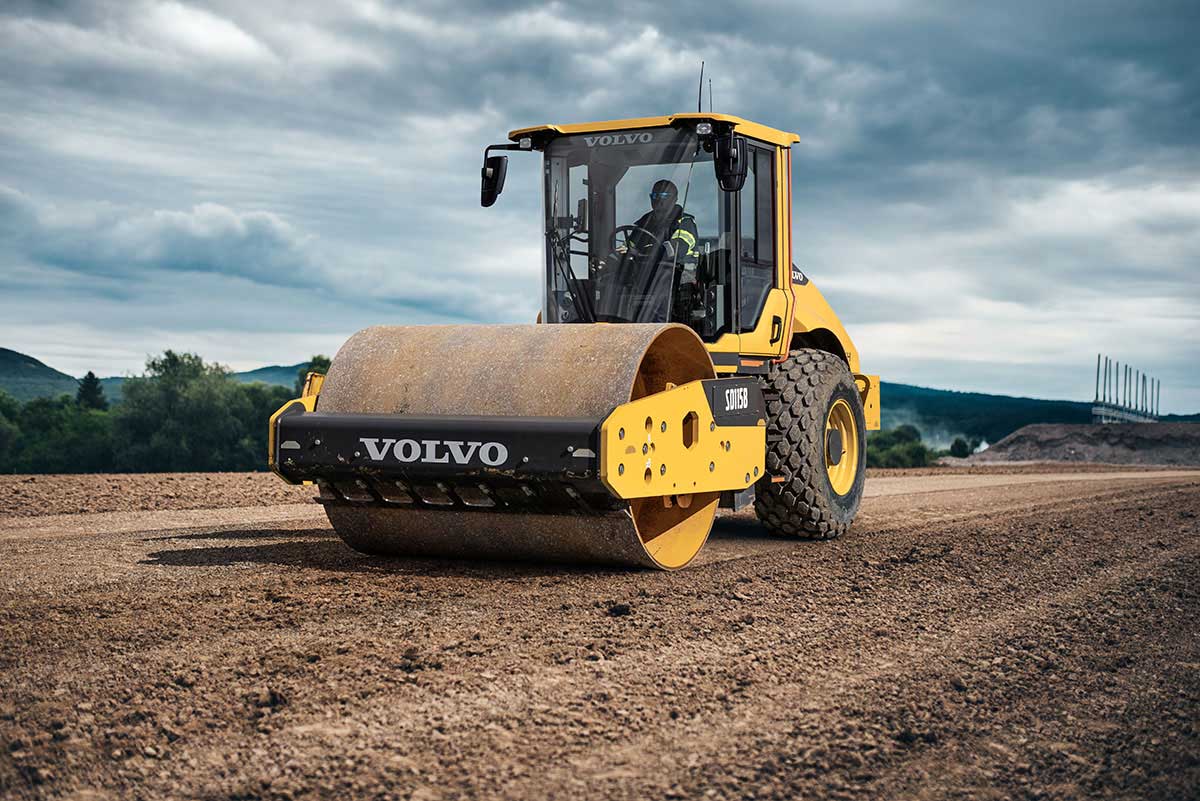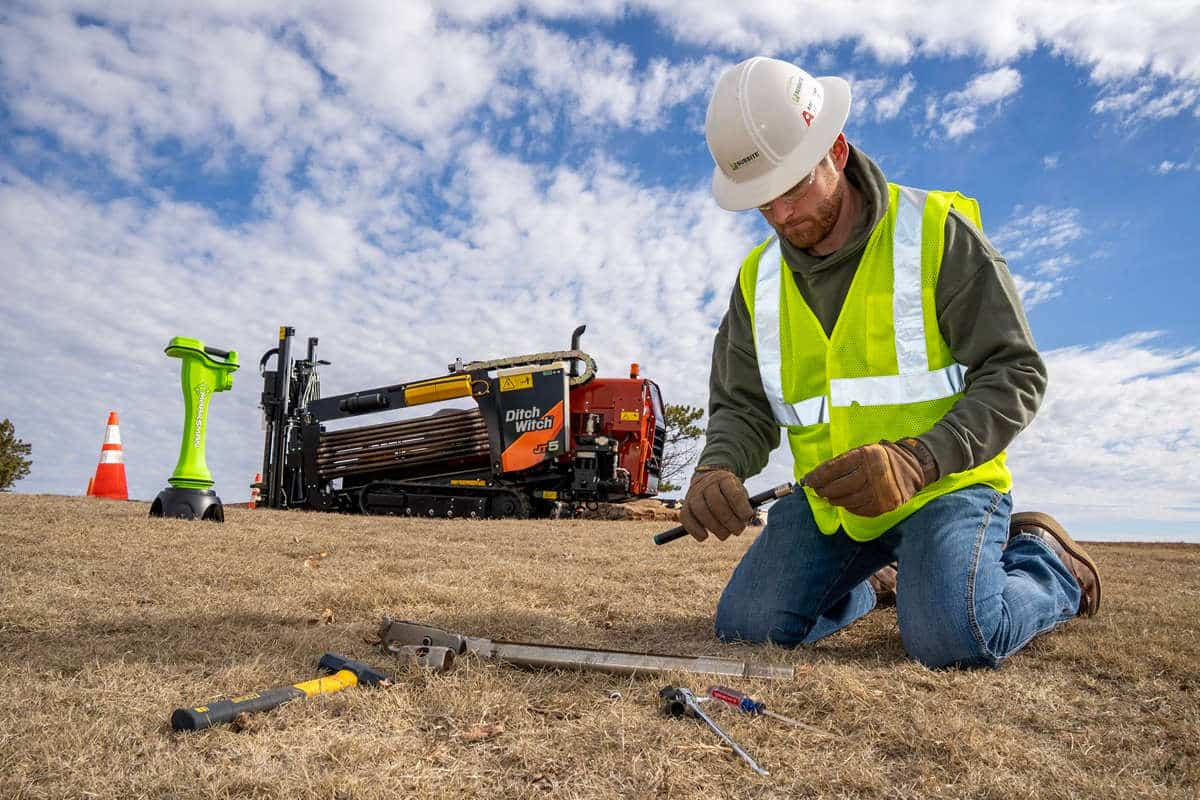Yanmar Exec Offers Perspectives on Changing Compact Equipment Market

Six months into her tenure as President of Yanmar Compact Equipment (CE) North America, Anna Christine Sgro is bringing a wealth of experience and a fresh outlook to a market in flux.

With a career spanning leadership positions at Volvo CE, major US dealer Strongco and global equipment auctioneer Ritchie Brothers, Anna Sgro has seen the construction equipment sector from a number of vantage points. Now at Yanmar CE as the President of its North America Region, she is seeing it anew – moving from larger general-purpose machines into the compact segment, where Yanmar CE is carving out a space as a brand defined by deep commitments to customer needs, through reliable products and solutions, and to the environment.
A market in transition
Asked to describe the state of the North America compact equipment industry, Sgro doesn’t hesitate. “The market is becoming more crowded with lower-priced entrants who compete on cost rather than long-term reliability and lifecycle value,” she says. But within that dynamism Sgro sees opportunity. “Customers want reliability – machines that don’t break down and don’t have to go back to the dealership. That’s where Yanmar scores highly. Customers tell us they can run our equipment for eight or nine years, with just regular maintenance, and no worries.”
She points to another shift: the growing dominance of rental channels. Consolidation has seen mid-sized companies absorbed into rental giants, creating enormous buying power. Such influence can’t easily be ignored. Add to this the retail entry of big-box stores such as Home Depot and Lowe’s and it’s clear that routes-to-market are changing quickly.
Electrification, too, is looming. Although the construction sector is several years behind automotive, the pressure to decarbonize is building. “There was a lot of excitement about electrification five years ago, but some of that expectation, and the pace of change, has cooled. It will happen — albeit slower than many predicted.”
Seeing through the cycle
One of Sgro’s most important observations is that the post-COVID boom years were not a ‘new normal’, but more of an exceptional ‘blip’ in demand. “During COVID, factories were running two and three shifts to keep up with orders. It was insane,” she recalls. “But what followed, in 2023 and 2024, has been sobering. The industry is cyclical, and this year as it approaches its nadir, has been one of the toughest. The real question is: What is normal? Was it 2019–2020 or the COVID boom years of 2020 and 2021? If we remove the exceptional spikes, the long-term trend looks more manageable. That’s what we should plan for.”
For many manufacturers, the challenge is structural. Having ramped up capacity during the boom, they now face excess costs in a cooler market. On top of this comes tariffs, which either dampen demand if passed on in higher prices, or squeeze margins if absorbed by manufacturers. “During the COVID period, when tariffs were first introduced, high demand meant the market accepted price increases. Today, it won’t.”
In this environment, Srgo argues, discipline matters. “At Yanmar, we are being thoughtful in how we manage costs and pricing, working to minimize volatility for our dealers and customers wherever possible. Our commitment to the North American market is long-term. Supporting dealers and end users through challenging conditions as well as periods of growth is what customer centricity means in practice.”
A fresh approach
Sgro’s background has prepared her well for this moment: she is highly experienced in questioning conventions and reimagining business models. Now, she is applying the same approach to compact equipment.
“In this rapidly changing world, we need to reimagine what the dealer could look like,” she says. “Why not think more broadly — about lifestyle products or non-traditional retail? Tesla proved you can sell cars in a shopping mall. Why couldn’t we sell compact equipment in new places too?”
While we explore new access and visibility models, our dealer network remains our primary channel. Strong dealer partnerships are essential to the customer experience, service support and long-term ownership satisfaction. She is equally focused on digital and direct-to-customer opportunities. The ‘box sale’ approach — ordering online, collecting from a depot — is much more feasible in compact equipment than in heavy machinery. “We have to be more creative in how we go-to-market, because our range is smaller and more focused than the full liners. That’s our advantage.”
Another untapped segment, she argues, is agriculture. “Farmers often need a small excavator on the farm. It’s a huge sector that’s often overlooked, but one we can serve well,” she says.
Customer centricity
If there is a single theme running through Sgro’s comments, it is her passion for customers. “Too often, manufacturers build brilliant machines that nobody buys, because nobody asked the customer what they wanted in the first place,” she says.
Her focus is on listening: through dealer council meetings, dealer visits and regular conversations. “I always ask: What do we do well? What do we do badly, What’s your biggest concern? And how do we win together?”
This emphasis shapes product strategy too. By tailoring products to each segment (rental, agriculture, contractors, householders etc.) Yanmar CE can differentiate itself from ‘sleepy giants’ that overlook compact ranges in favor of big-ticket machines.
Priorities for Yanmar CE North America
Sgro’s first six months have been spent laying foundations. She has overseen a complete restructuring of the commercial team, strengthened dealer support and brought in new expertise in channel development and national accounts.
Operationally, Yanmar CE is modernizing its compact track loader facility in Grand Rapids, Minnesota, and encouraging greater talent exchange between Japan and North America, bringing fresh skills and cultural perspectives into the team.
“Getting the technology, processes and people right is essential,” she says. “And just as important is making it easier for dealers to do business with us: upgrading systems, simplifying warranty processes and giving them confidence that we are a trusted partner.”
Building resilience
For Sgro, the current downturn is not a reason to retreat but an opportunity to invest. “Resilience through tough times builds loyalty and trust,” she reflects. “If we protect our key investments and prioritize the customer now, when the market recovers – which it will – we will come out stronger.”
Her message to the marketplace is clear: Yanmar CE aims to be known as a beacon of reliability and solid Japanese quality, not just in machines, but in people and partnerships. “I want our dealers and customers to trust us; to know we’re invested in their success. That’s how we grow together.”
It’s a philosophy she learned early, working in her father’s furniture shop as a child. Dressed in her Sunday best, she was taught to shake customers’ hands, look them in the eye and make them feel valued. “Looking after customers is still a real passion of mine, because I’ve lived it,” she says. “That’s what I bring to Yanmar CE.” Tags: Yanmar




